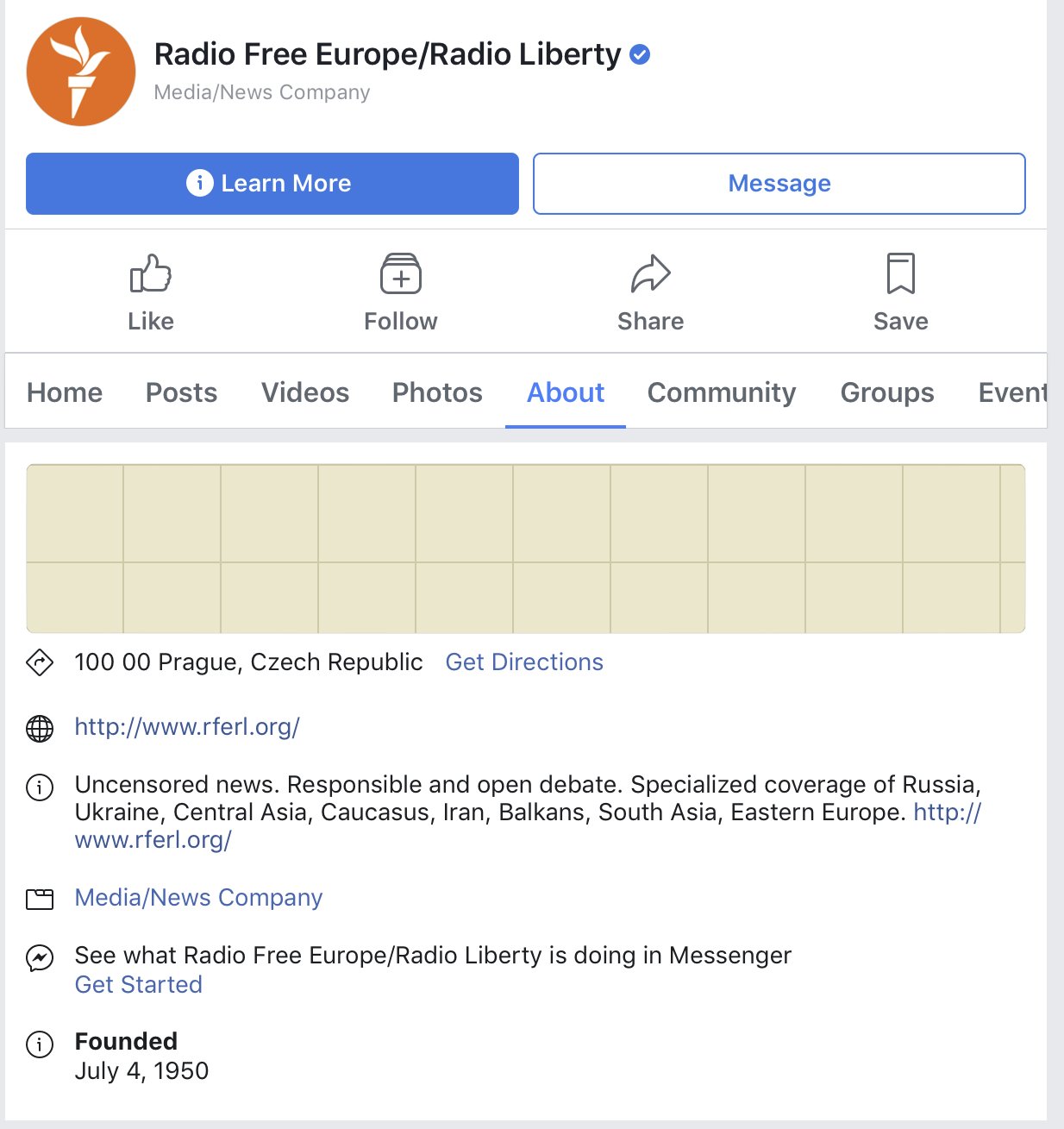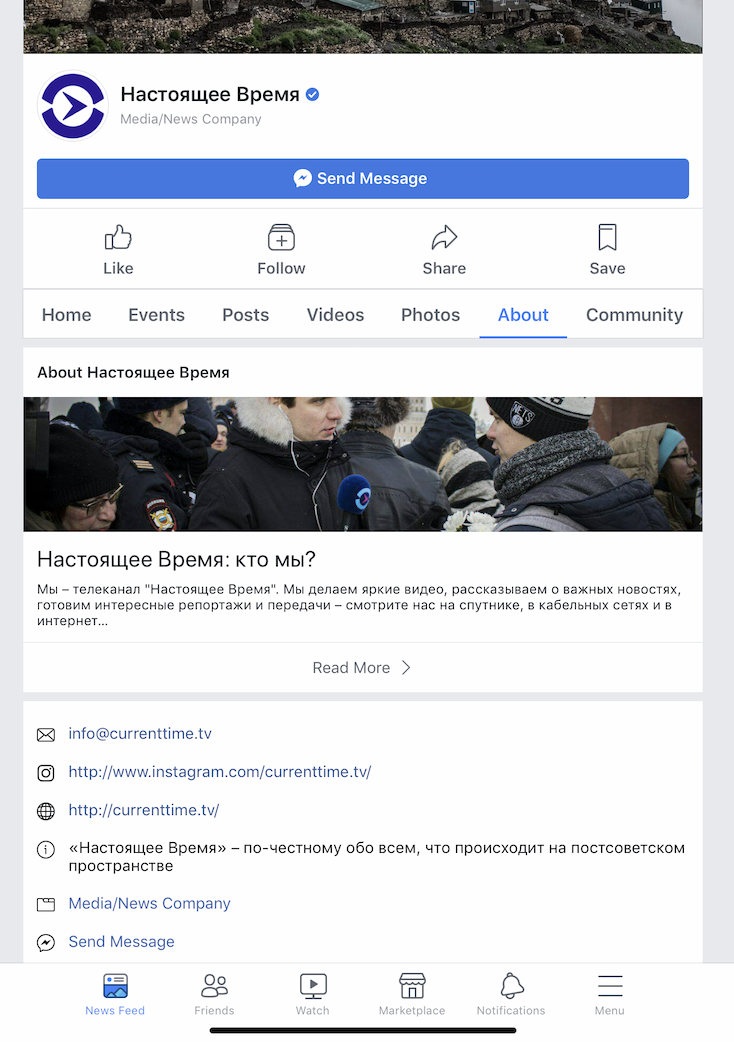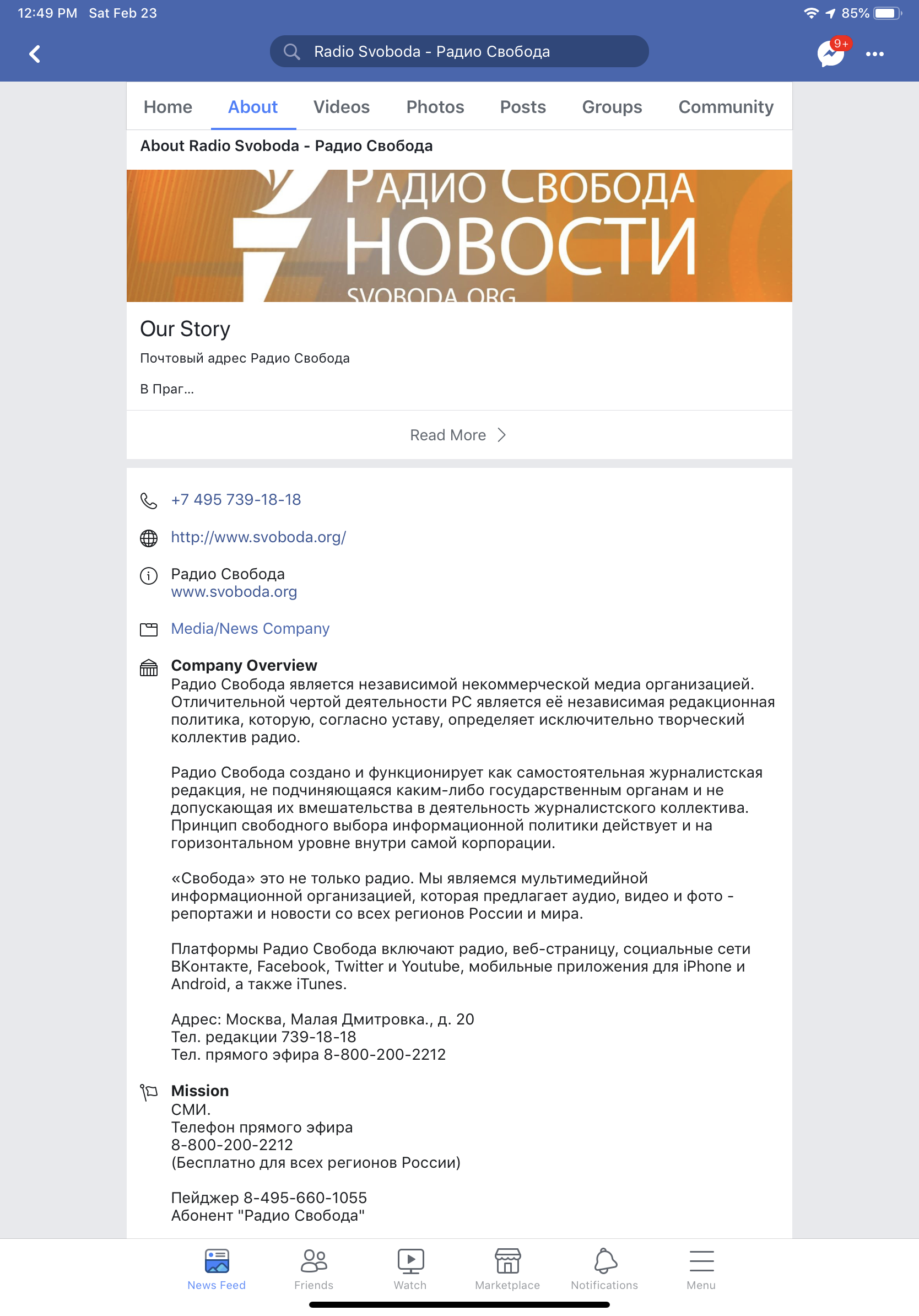Facebook as an American geopolitical weapon
When Facebook unilaterally censored Maffick simply because the social media-geared company is backed by Russia’s RT, I saw it as just another example how closely and openly Facebook has been integrated into America’s corporate-national-security apparatus.
The private-public censorship command chain here is very interesting: the state-funded German Marshall Fund (backed by USAID, NATO, State Department, Germany, etc) snitched to CNN. CNN snitched to Facebook. Facebook banned the pages.
— Yasha Levine (@yashalevine) February 16, 2019
As I explain in my book, Facebook (and American Internet companies in general) have always been an instrument of American power. Yet for years, the company had tried to sell itself as a totally neutral platform devoid of any national and geopolitical interests. And for a while it succeeded. But these days it doesn’t try to hide it anymore. After 2016, the mask has come off. Facebook now openly functions like an extension of American imperial power.
What made this so obvious was the glaring double standard that's guiding Facebook’s takedown of Maffick. On prodding from a U.S. government-funded thinktank, it suddenly demanded transparency for Pages run by a media company funded by Russia (and then shut them down with no warning). Yet Facebook continues to allow the U.S. government and powerful U.S. corporations to operate their Pages without hinderance — even when these Pages are obviously set up by lobby groups and government initiatives to covertly manipulate people and influence democracy.
Which Pages? Well, just from the ones that I've come across in my reporting over the years, they include those run by old spook-spinoffs like Radio Free Europe/Radio Liberty and the Tor Project, as well as corporate propaganda groups like the Electronic Frontier Foundation and Cato Institute — just to name two out of many similar outfits trying to influence Americans on behalf of their donors.
I wanted to know Facebook’s policy on this obvious double standard. So this weekend I sent the company’s press office an email asking for clarification. To be honest, I don’t expect to hear back from them. So I’m posting the letter publicly for posterity. I hope other journalists follow up as well.
UPDATE 2/26/19: Facebook still has not replied to my query, but it did restore Maffick's Pages after the company disclosed its Russia funding. Facebook still makes no such requirement for Pages funded by the U.S. government and U.S. corporations.
—Yasha Levine
Dear Facebook —
I’m an investigative journalist working on a story about Facebook’s takedown of Pages operated by “Maffick,” a social media-geared news subsidiary of Russia’s RT.
A Facebook spokesperson told СNN that although Maffick did not violate its terms of service, the company was still unconditionally suspending Maffick’s Pages because of concerns for transparency. “People connecting with Pages shouldn't be misled about who's behind them. Just as we've stepped up our enforcement of coordinated inauthentic behavior and financially motivated spam over the past year, we'll continue improving so people can get more information about the Pages they follow,” the spokesperson said.
I have two questions for comment.
My first question: Why does Facebook apply a double standard to Pages set up by media outlets funded by the U.S. government?
Multiple Facebook Pages created by U.S. Agency for Global Media — including Radio Free Europe/Radio Liberty and Radio Free Asia — do not indicate that they are funded by the U.S. government. You may be unaware, but the U.S. Agency for Global Media is a federal agency that spends nearly a billion dollars a year on foreign broadcasting “to advance U.S. national interests” around the world. Part of its Congressionally-mandated influence mission includes running many different Facebook Pages. Yet none of these Pages disclose the source of their funding — nor do they disclose that their whole point is to influence the populations of foreign countries on the behalf of the U.S. government. (I provide three examples below as attachments.)
My second question: Why does Facebook focus so much on foreign governments, while ignoring domestic private organizations that seek to covertly influence people?
For example, take Cato Institute — a group set up and funded by the Koch family to promote Koch Industries’ business interests by covertly influenceing ecomoic and political ideas. According to a Greenpeace report, the Cato Institute is part of a massive corporate-funded “Climate Denial Machine” set up to spread covert pro-fossil fuel industry propaganda. The group has found that the Koch family has spent at minimum $127 million financing Cato Institute and 92 other similar groups, all of “which have attacked climate change science and policy solutions” without disclosing their ties to the Kochs. Cato Insitute, as well as most of these other groups, have popular Facebook Pages. Yet they don’t disclose their ties to Koch Industries and other corporate donors that use them as vehicles for covert influence. Why?
One more example is the Facebook Page of EFF, the Electronic Frontier Foundation. EFF functions as a third-party lobbyist group for Silicon Valley and has taken millions in funding from major Internet companies, including Facebook. Yet this is not reflected on EFF’s Facebook Page.
So I’d like to reiterate my question:
Why does Facebook apply a double standard to transparency: It demands it for Pages set up by entities funded by foreign governments, yet allows the U.S. government and U.S. corporations to operate their Pages without hinderance — even when these pages are set up with the stated goal of covertly influencing people.
Is this official Facebook policy?
Thank you for your time. I look forward to hearing back from you.
Sincerely,
Yasha Levine
Author, Surveillance Valley: The Secret Military History of the Internet
Attachments:


